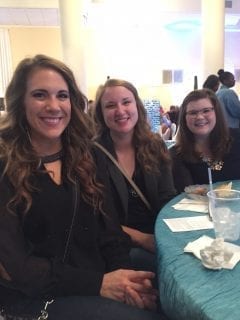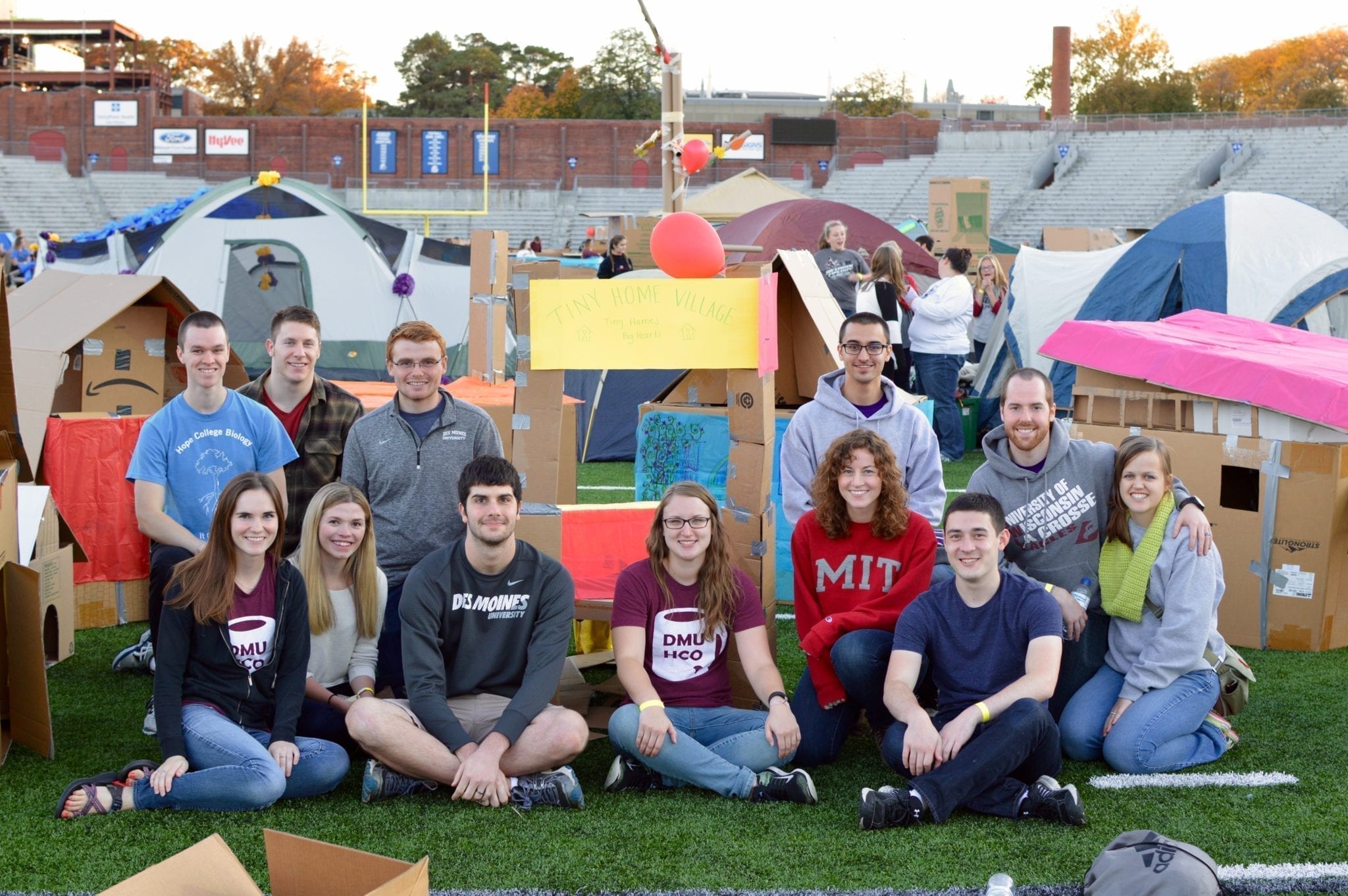
One evening, they found themselves surrounded by jewels from Tiffany’s. On another, they were constructing shelters out of cardboard and duct tape. In these and many other activities, members of Des Moines University’s Homeless Community Outreach (HCO) work to raise awareness about homelessness, raise funds to help those in need and – most important – provide friendship to people experiencing homelessness and those who are medically underserved.
“Our goal is to establish personal, caring relationships with the unsheltered population around Des Moines in which the individuals’ dignity, wellness and humanity is validated,” says Dana Bechtold, a second-year osteopathic medical student and president of HCO. “One way we do this is by visiting homeless camps and formerly homeless individuals every Sunday morning.”
Dana, past HCO president Julie Risinger and Amanda Buck, president of the DMU chapter of the American Medical Student Association, recently accompanied University President Angela Walker Franklin, Ph.D., to “Jazz, Jewels and Jeans,” a fun evening that featured live music and live and silent auctions, including those Tiffany’s gems. The annual event is a fundraiser for Oakridge Neighborhood, which provides a safe, secure community with supportive housing, programs and services that benefit children and families and help them achieve self-reliance.
“Homes of Oakridge offers amazing programs whereby they help individuals gain housing even through financial difficulties,” Dana says.

In October HCO members participated in the 11th annual Reggie’s Sleepout, held in the Drake University Stadium in Des Moines. Participating teams raise money and build shelters on the stadium field to help tackle youth homelessness through Iowa Homeless Youth Centers. HCO’s cardboard structures represented a tiny home village, a concept that local advocates for homeless persons have proposed to shelter people in need. Many of the boxes HCO used had previously contained new osteopathic manual medical tables the University had just received.
“We contacted the facilities department just in time,” Dana says.
HCO members are planning events for National Hunger and Homelessness Awareness Week, Nov. 12-20. They include an Oxfam America Hunger Banquet, in which participants are randomly assigned to one of three socio-economic levels that represent global standards of living and are fed accordingly: 15 percent enjoy a full-course meal; 25 percent receive a simple dish, such as pizza; and 60 percent get plain rice, served in paper cups with no utensils, and sit on the floor.
“As illustrated by the social determinants of health, housing is an essential aspect of health care, and studies show, time and again, that housing improves individuals’ health and reduces health care costs,” Dana says. “Besides the improvement of physical health through reducing exposure to the elements, the relief of stress and comfort in knowing that you have a safe place to go home to every night is irreplaceable.”

